
Simone Signoret was a French actress. She received various accolades, including an Academy Award, three BAFTA Awards, a César Award, a Primetime Emmy Award, and the Cannes Film Festival Award for Best Actress, in addition to nominations for two Golden Globe Awards.

Hanna Schygulla is a German actress and chanson singer associated with the theater and film director Rainer Werner Fassbinder. She first worked for Fassbinder in 1965 and became an active participant in the New German Cinema. Schygulla won the 1979 Berlin Silver Bear for Best Actress for Fassbinder's The Marriage of Maria Braun, and the 1983 Cannes Film Festival Award for Best Actress for the Marco Ferreri film The Story of Piera.

Keep Not Silent is a 2004 Israeli documentary film directed and produced by Ilil Alexander about three lesbians in Jerusalem. Ilil had just graduated from Tel-Aviv University Film School.
Orange People may refer to:

André Azoulay is a Moroccan Jewish senior adviser to king Mohammed VI of Morocco. He previously advised Mohammed's father, king Hassan II. He currently presides over the Anna Lindh Euro-Mediterranean Foundation for the Dialogue Between Cultures, based in Alexandria, Egypt. He is also President of the executive committee of the Foundation for the Three Cultures and the Three Religions, based in Seville, Spain, a founding member of the C-100 Davos Forum for the Dialogue of Civilisations and religions, and was formerly Executive Vice-president of the BNP Paribas, Paris. His daughter is UNESCO Director-General Audrey Azoulay.
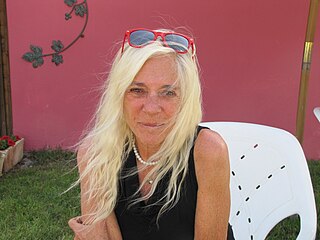
Nili Tal is an Israeli journalist and documentary film director and producer. She is the great-grandchild of Sigmund Weinberg, one of the pioneers of Turkish cinema.
Simone Bitton is a French-Moroccan documentary filmmaker. Her films have been nominated for or won the César Award, the Marseille Festival of Documentary Film Award, and the Sundance Film Festival, Special Jury Prize.

The Policeman is a 1971 Israeli feature film, written and directed by satirist Ephraim Kishon. The title character is played by Shaike Ophir, in what is considered one of his finest performances.

Hana Laszlo is an Israeli actress, television presenter and comedian. In 2005, she won a Cannes Film Festival Award for Best Actress for her performance in the film Free Zone. She has also received four Ophir Award nominations.

Ronit Elkabetz was an Israeli actress, screenwriter and film director. She worked in both Israeli and French cinema. She won three Ophir Awards and received a total of seven nominations.
The America-Israel Cultural Foundation (AICF) is a non-profit American foundation that supports cultural projects in Israel.
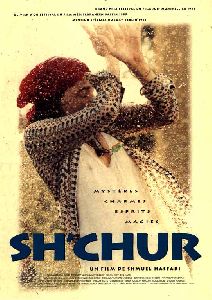
Sh'Chur is a 1994 Israeli drama film starring Gila Almagor, Ronit Elkabetz and Hanna Azoulay-Hasfari. It was written by Hanna Azoulay Hasfari and directed by her partner Shmuel Hasfari. Sh'Chur received critical acclaim and was the 1994 official Israeli submission for the Academy Award for Best Foreign Language Film. It was also awarded the Ophir Award for best film by the Israeli Film and Television Academy. After its release, the film garnered various discussions in the Israeli press over its representation of the Moroccan community in Israel.
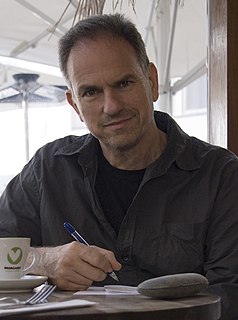
Avi Nesher is an acclaimed Israeli film producer, film director, screenwriter and actor.
Nina Menkes is an independent filmmaker. Her films include The Great Sadness of Zohara (1983), Magdalena Viraga (1986), Queen of Diamonds (1991), The Bloody Child (1996), "Massacre (Massaker)" (2005), Phantom Love (2007), Dissolution (2010), and Brainwashed: Sex-Camera-Power (2022). Dissolution (2010) was filmed in black and white and is set in Israel. Nina Menkes' sister Tinka appears as an actress in many of them. Menkes teaches at the California Institute of the Arts in Santa Clarita, California. She has donated copies of several of her works to the Academy Film Archive.

Israeli-Moroccan relations are the official relations between the State of Israel and the Kingdom of Morocco.
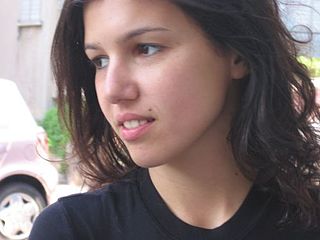
Tali Shalom-Ezer is an Israeli filmmaker, screenwriter, and director. She is best known for her debut feature, Princess (2014) which premiered at the 2015 Sundance Film Festival as part of the World Dramatic Competition.
False Flag is an Israeli television thriller drama series.
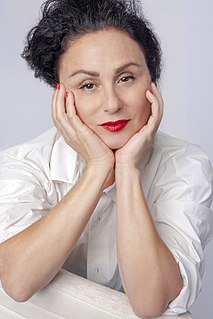
Hanna Azoulay-Hasfari is an Israeli actress, screenwriter, playwright, film director and a two-time winner of the Ophir Award. She is a women's rights activist, and has dedicated her career promoting awareness regarding social justice issues and cultural diversity. In 2015, she was invited to speak at the United Nations headquarters in New York, in honor of International Women's Day, where she presented a screening of her film Orange People, in condemnation of child marriage.

Audrey Azoulay is a French civil servant and politician who has been serving as the Director-General of the United Nations Educational, Scientific and Cultural Organization (UNESCO) since 2017, becoming the second female leader of the organization. She previously served as France's Minister of Culture in the government of Prime Minister Manuel Valls from 2016 to 2017.

Gypsy Davy is a 2011 documentary film, directed by Rachel Leah Jones, and co-produced by Jones and Philippe Ballaiche.















